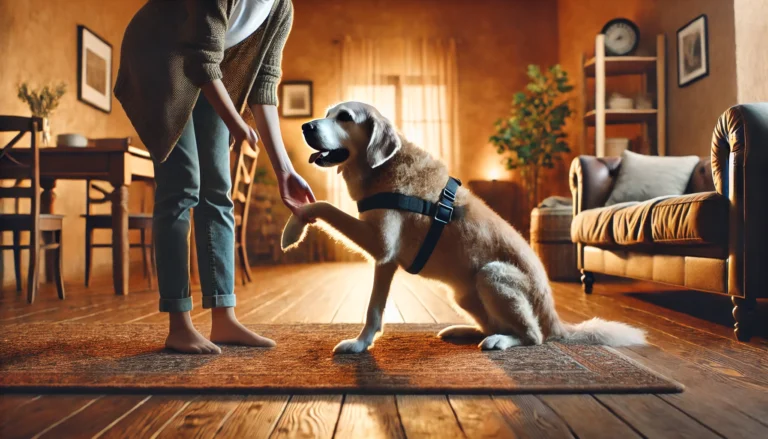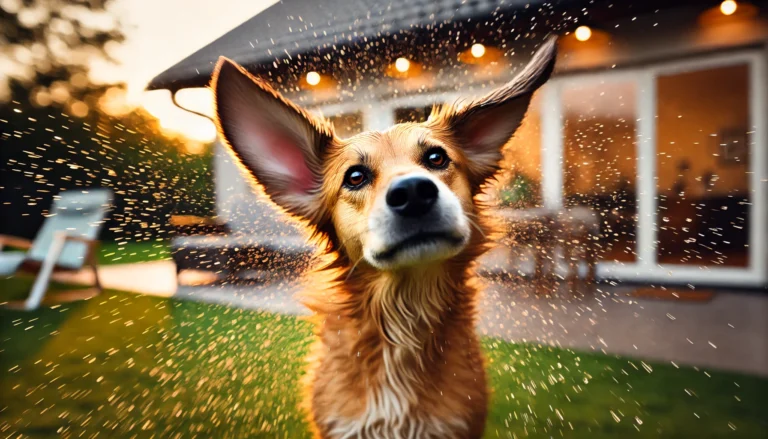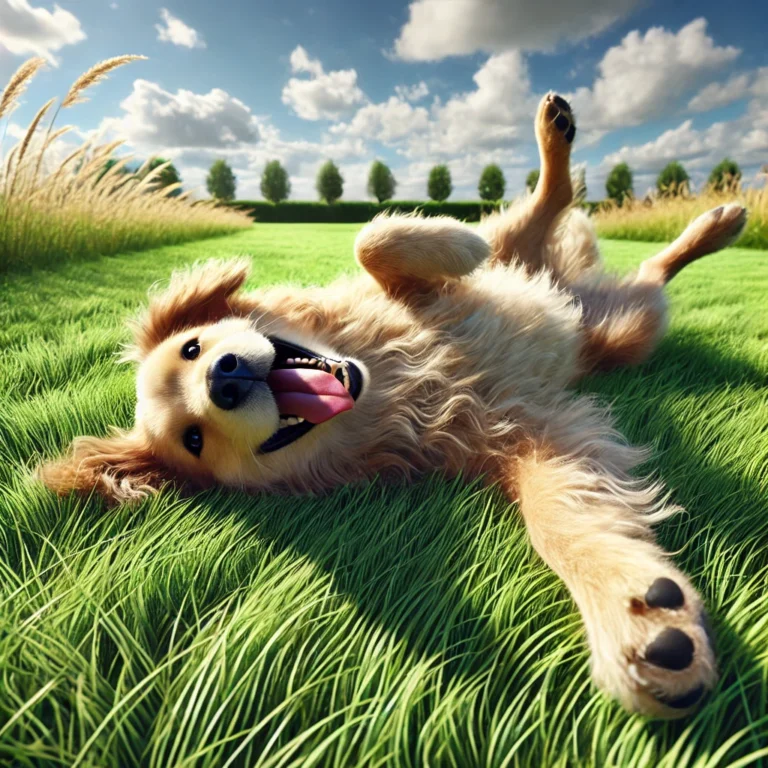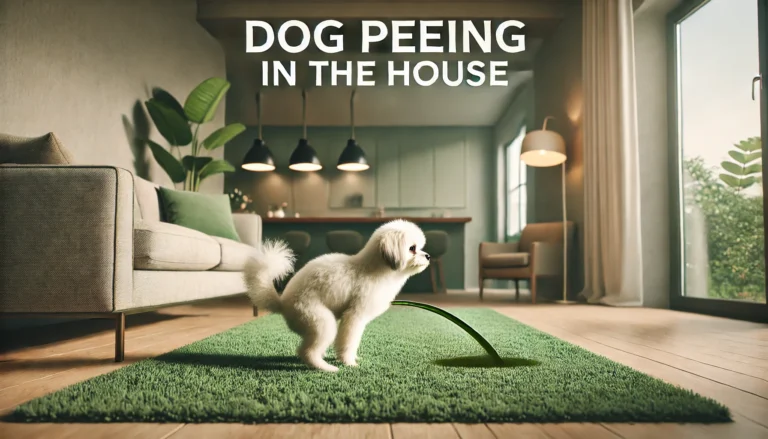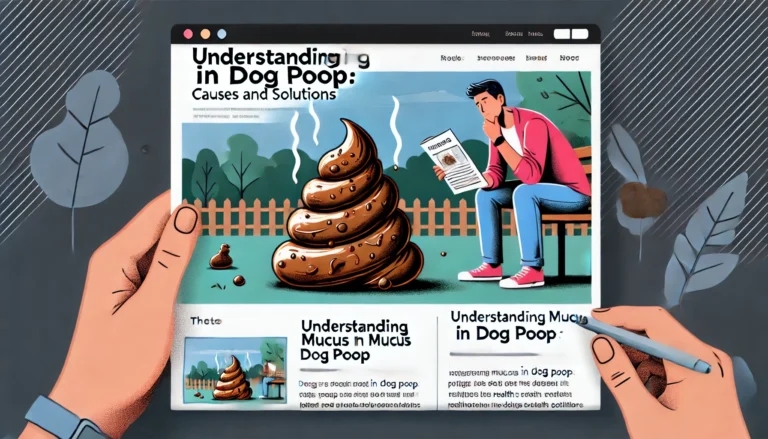why is my dog drinking a lot of water?
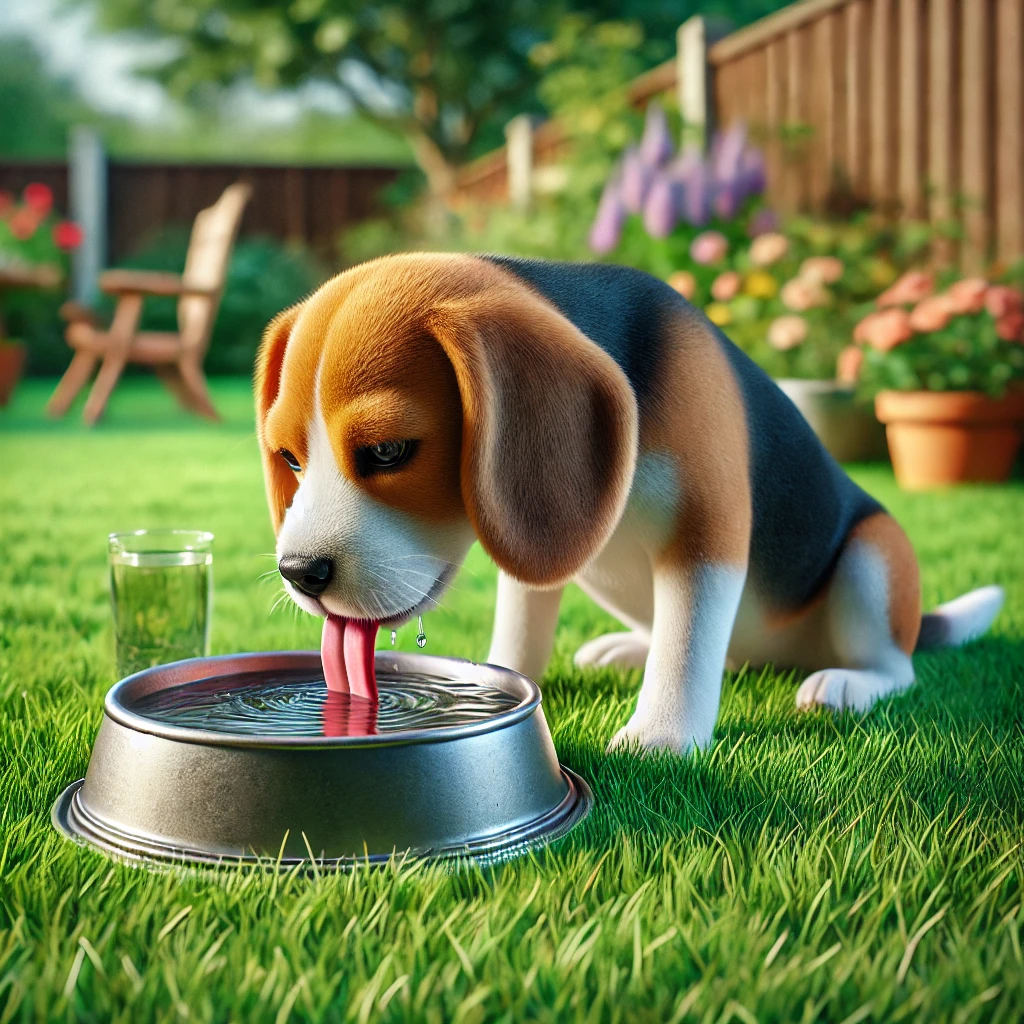
Why is your dog drinking a lot of water? If you’ve noticed lately, you might be concerned about what this means for their health. Excessive water consumption can sometimes be harmless, tied to your dog’s activity level or the weather, but it can also be a symptom of serious health issues. In this article, we’ll explore all the reasons why your dog might be consuming more water and provide insights into when you should worry and seek veterinary advice.
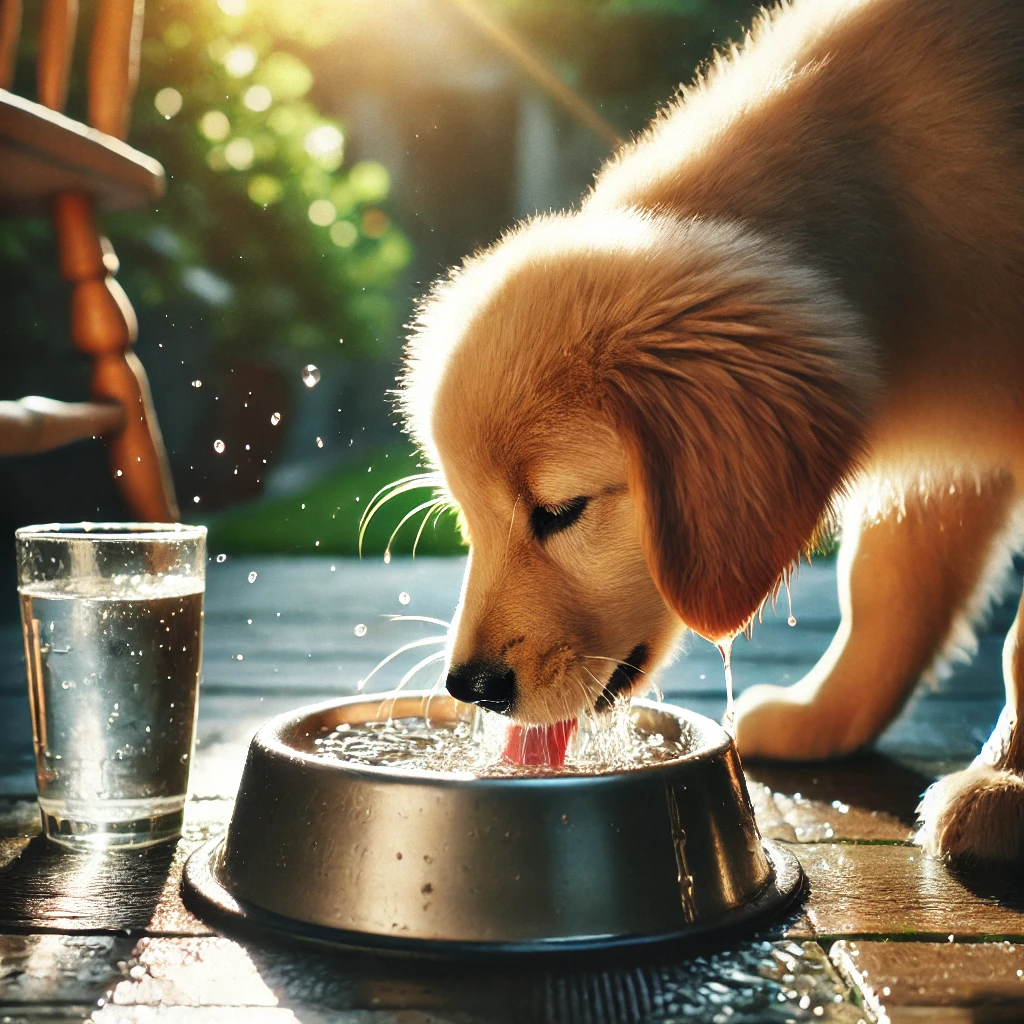
Normal vs. Excessive dog Drinking a lot of water
What’s Normal?
Typically, a dog should drink about an ounce of water per pound of body weight each day. However, this can vary depending on factors like age, diet, and exercise. Understanding what’s normal for your dog can help you recognize when their drinking habits have changed.
Table: Daily Water Intake Guide
| Dog’s Weight (Pounds) | Average Water Intake (Ounces) |
|---|---|
| 10 | 10 – 20 |
| 20 | 20 – 40 |
| 50 | 50 – 100 |
| 80 | 80 – 160 |
| 100 | 100 – 200 |
Recognizing dog drinking a lot of water
When a dog drinking a lot of water, medically known as polydipsia, it may accompany more frequent urination, or polyuria. If you find yourself frequently refilling the water bowl, if your dog empties it more than usual, or if they show an unquenchable thirst, these could be signs that something’s off.
Causes: Why is Your Dog Drinking a Lot of Water?
Dietary Causes
Changes in your dog’s diet, such as switching to dry kibble which may be saltier, or introducing new treats, can lead to an increase in thirst. Foods high in sodium are particularly likely to make your dog drink more.
Environmental Factors
Warmer weather can make your dog thirsty. If you notice that your dog drinking a lot of water during or after exposure to heat, it’s important to ensure they are not overheating or at risk of heatstroke.
Health-Related Causes
Several medical conditions can cause a dog to drink more water than usual:
- Diabetes: If your dog drinking a lot of water, it could be a sign of diabetes, especially if accompanied by weight loss despite normal or increased food intake.
- Kidney Disease: An increase in water consumption can be a sign of kidney disease, where the kidneys fail to concentrate urine properly, leading to an increase in water consumption and urination.
- Liver Disease: Less common but potentially serious, liver disease can also make a dog very thirsty.
- Infections and other conditions: Conditions like Cushing’s disease, infections, or even cancer can lead to an increased thirst in dogs.
Behavioral Factors
Sometimes, the reason why is dog drinking a lot of water might be behavioral rather than physical. Dogs might drink excessive amounts of water out of boredom or anxiety, especially if their drinking behavior suddenly spikes without any other symptoms.
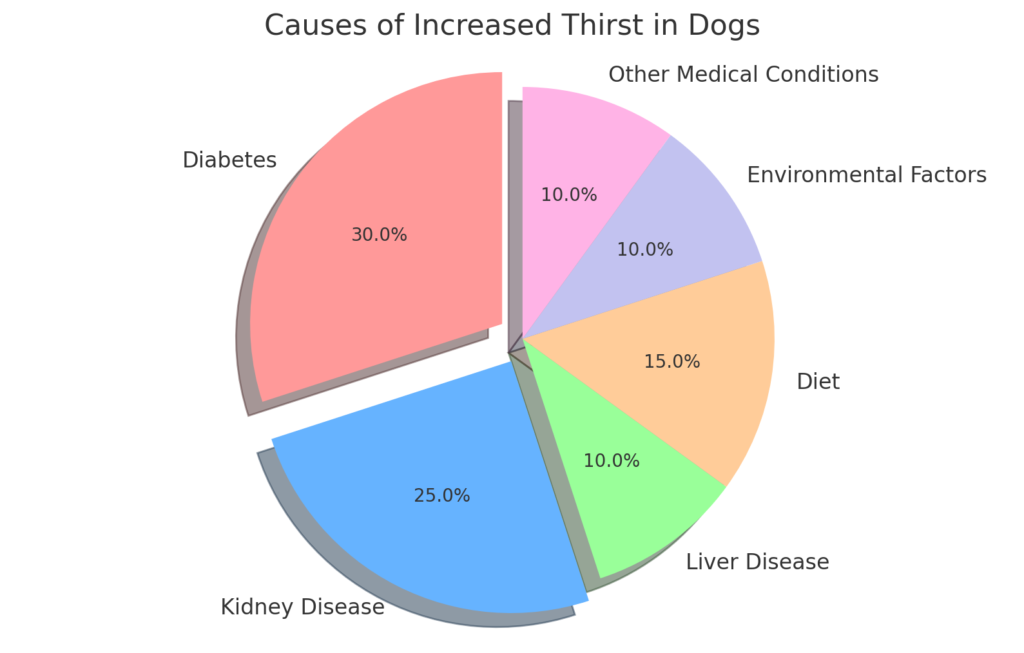
Diagnosis and Treatment of dog drinking a lot of water
If you suspect your dog drinking a lot of water due to a medical condition, a visit to the vet is crucial. They may recommend tests such as blood work and urine analysis to pinpoint the exact cause. Treatment will depend on the diagnosis but may include medication, dietary changes, or more specific interventions if an underlying disease is identified.
Tips
For dogs, eating pineapple in such cases is considered as a suitable option. It is important to know benefits of eating pineapple before giving it a try to your fluffy and loyal friend.
Managing Your Dog’s Water Intake
While it’s important not to restrict water access without professional advice, managing your dog’s environment and diet can help regulate their water intake. Here are a few tips:
- Provide constant access to clean water: Ensure your dog has fresh water available at all times to prevent dehydration.
- Monitor water intake: Keep an eye on how much your dog drinks to report any significant changes to your vet.
- Adjust diet and exercise: Ensure your dog’s diet is balanced and not too high in sodium. Regular, appropriate exercise can also help regulate their thirst and overall health.
Conclusion
If your dog drinking a lot of water, it’s essential to monitor their behavior and check for other symptoms like excessive urination, changes in appetite, vomiting, or lethargy. Understanding the root cause of their increased thirst can ensure your dog remains healthy and happy. When in doubt, always consult your veterinarian to get to the bottom of any sudden changes in your dog’s habits.
Why is my dog drinking so much water all of a sudden?
Sudden increases in a dog’s water intake can be due to various reasons including dietary changes, medication effects, or health issues such as diabetes, kidney disease, or infections. It’s important to monitor any accompanying symptoms like increased urination or changes in appetite, and consult a veterinarian if the behavior persists.
Do dogs drink more water when they are in pain?
Yes, some dogs might drink more water when they are in pain, especially if they’re experiencing discomfort from conditions like urinary tract infections, or if they are on medications such as steroids which can increase thirst as a side effect.
Do dogs drink more water as they get older?
Older dogs may drink more water due to aging-related health issues such as kidney disease or diabetes. As dogs age, their bodies become less efficient at regulating bodily functions, leading to increased water consumption.
How do I get my dog to stop drinking so much water?
It’s crucial not to restrict water access without veterinary guidance. If your dog is drinking excessive water, it’s important to first identify the underlying cause with the help of a vet. Treatment and management will depend on the specific diagnosis.
Is it OK for a dog to drink a lot of water?
While it’s generally okay for dogs to drink plenty of water, especially in hot weather or after exercise, excessive water intake can sometimes be a sign of underlying health issues. Monitoring and consulting with a vet is advisable if you notice any unusual increases in thirst.
What happens if a dog gets too much water?
Drinking too much water can lead to water intoxication, which is rare but potentially life-threatening. Symptoms include nausea, bloating, lethargy, dilution of blood sodium levels, loss of coordination, and in severe cases, seizures.
What do I do if my dog drank too much water?
If you suspect your dog has consumed an excessive amount of water and is showing symptoms like bloating, vomiting, or coordination problems, it is critical to seek immediate veterinary care. The condition can progress quickly and may require medical intervention.
What are the signs of a UTI in a dog?
Signs of a urinary tract infection (UTI) in dogs include frequent urination, straining to urinate, bloody or cloudy urine, increased thirst, and signs of discomfort during urination. If you notice these symptoms, a veterinary checkup is necessary.


